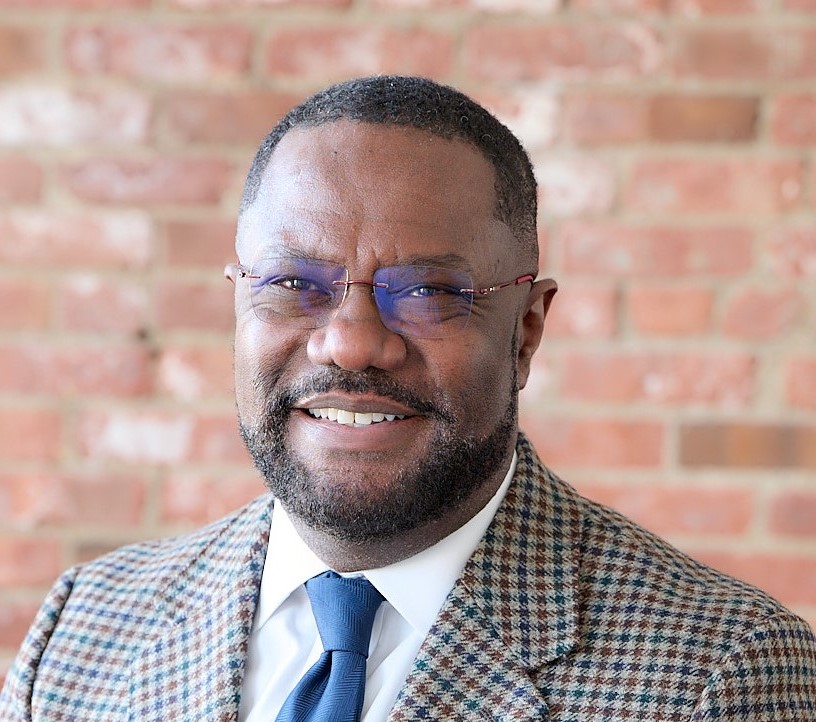LISC’s new CEO, Michael T. Pugh, reflects on the full-tilt activity and relationship-building of his first five weeks on the job. Meeting funders, community partners, residents and colleagues has been the most enriching part of the journey.
My first month on the job as CEO at LISC, not surprisingly, has been a whirlwind of new connections and conversations, and the highlight has been getting to know many of you.
I am so heartened and impressed by what I see and hear as I learn more about the organization, its program work, and the deep relationships our staff across the country have built with community partners. I have been bowled over by this large team’s diverse life stories and motives for working in community development, and their relentless dedication to the field. And beyond huddling with LISCers at the national level, I am excited to embark on site visits with the leaders of our 38 local offices and rural program, to find out more about how LISC responds so nimbly and creates impact for the people and places that have been sidelined from America’s prosperity.
I am also touching base with the many supporters who make our work possible. In conversations with Lowe’s and Citi Foundation, for example, we confirmed our ongoing partnerships and delved into our mutual commitment to tackling the affordable housing crisis, making economic mobility a reality for everyday Americans, and nurturing small businesses in under-resources places. (A new $1 million grant from Lowe’s, for example, will help us fund training that connects job seekers with careers in the building trades.)

I was especially moved by an event in the Anacostia neighborhood of Washington, D.C. celebrating the Entrepreneurs of Color Fund (EOCF) that we manage through our partnership with JPMorgan Chase. I had the chance to speak to small business owners from the community and hear about how they have been able to grow their enterprises, support their families and create jobs thanks, in part, to LISC's investment. The 6,500 loans we have made since the program’s inception, now totaling $330 million, is a prime example of our Project 10X initiative to narrow the nation’s racial health, wealth and opportunity gaps, and it was wonderful to hear from the very people whose lives and neighborhoods are impacted by this work.
I also participated in a panel sponsored by the Bill & Melinda Gates Foundation, where I shared LISC’s work with a group of philanthropists, including the ways we are supporting formerly incarcerated individuals to re-enter the workforce. Helping dismantle the many obstacles that keep people from rebuilding fulfilling, productive lives is at the heart of our collaboration with the Department of Justice, and the $17+ million in federal grants we are currently deploying through our Safety + Justice team to bolster community violence intervention work across the country.
And I was grateful to join a “think session” hosted by the Department of Treasury, centered on economic inclusion. LISC’s program support for workforce development, family income and wealth-building, small business development and other elements of economic inclusion is a robust force in the industry. And we are at the vanguard of linking community development with economic development in a way that can build a sustainable and just future for all of us.
Every one of these conversations will inform LISC’s next three-year strategic plan, which will in turn guide our investments and areas of programmatic concentration well into this decade. We are hopeful that our $9 billion proposal for the federal Greenhouse Gas Reduction Fund, in collaboration with Habitat for Humanity, Enterprise Community Partners, United Way and Rewiring America, will be successful and form part of that blueprint for connecting families with sustainable and healthy affordable housing, training and placing people in green jobs, and pursuing climate justice across under-invested communities that are hardest hit by our changing environment.
As you can see, 2023 has been another big year for LISC, and we have touched the lives of tens thousands of people. LISC invested more than ever in growing our nation’s cadre of developers of color, for instance, and established a first-of-its kind internship program that places HBCU students with community development financial institutions.
At the local level, LISC’s impact continues to astound me: our Twin Cities office, for example, just celebrated the landmark of having invested $1 billion—billion—in affordable housing, inclusive economic development, financial coaching among many other areas. In Virginia, we have committed $50 million to helping the City of Richmond close its affordable housing gap.
I am thrilled to be embarking on the next stage of this journey with you. And I am deeply grateful to my colleagues and all of LISC's funders, community partners and residents—for your support, and for your commitment to creating the kind of just and equitable communities we all want to live in.
 ABOUT THE AUTHOR
ABOUT THE AUTHOR
Michael T. Pugh, President & CEO
Michael T. Pugh became CEO of LISC in October 2023. He has more than 30 years of experience in banking, with a particular focus on expanding access to capital for underserved families, businesses, and communities. Michael spent more than a decade at the Harlem-based Carver, leading the nation’s largest publicly traded African American-operated bank, with more than $720 million in assets.